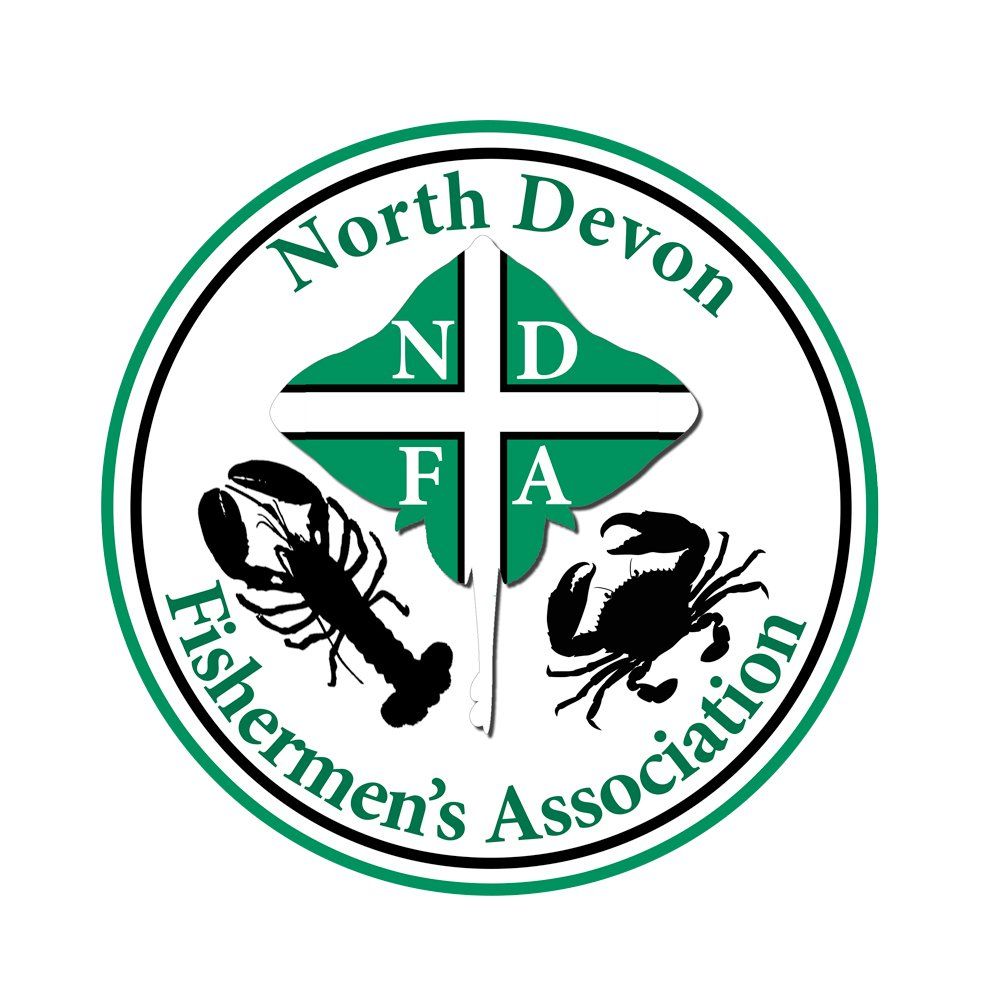Blog
NDFA latest news
Latest news
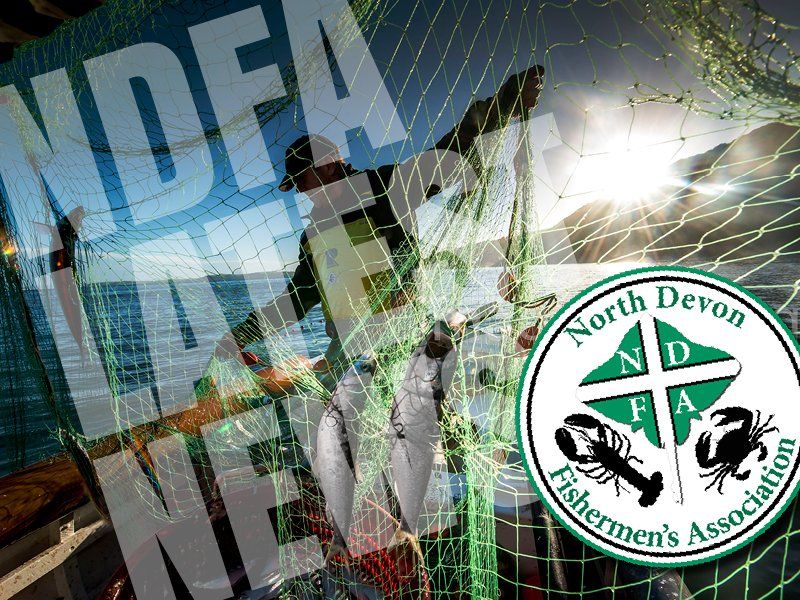
17 Apr, 2020
17th April 2020 - £10 million fund for England’s fishing and aquaculture sectors announced. More than 1,000 fishing and aquaculture businesses in England will receive direct cash grants through a fisheries support scheme announced today by Environment Secretary George Eustice and Chief Secretary to the Treasury Steve Barclay. In the latest step to protect businesses affected by coronavirus, plans unveiled today mean that up to £9 million will be available for grants to eligible fishing and aquaculture businesses. A further £1 million will be made available to support projects to assist fishermen to sell their catch in their local communities. This money will help fishing businesses find new ways to market and sell their catch while traditional markets are restricted, not only supporting the sector but also the local communities that depend on the industry. For further information, please click here .
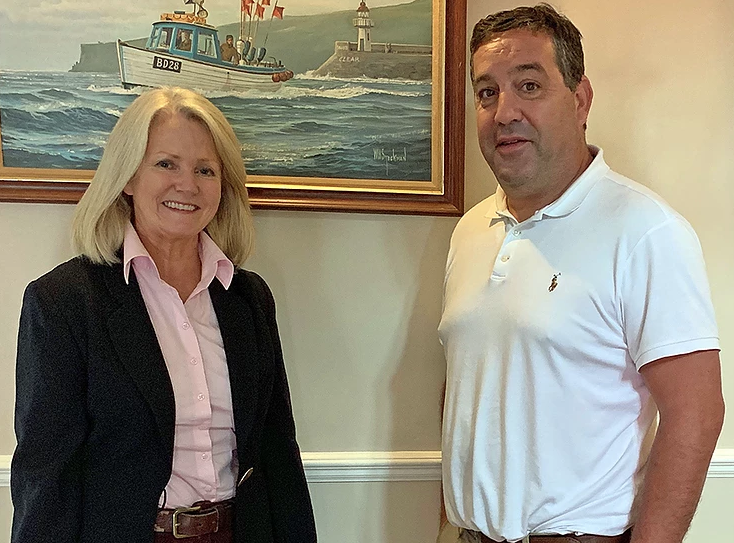
05 Nov, 2019
05 November - Will Brexit see the rebirth of the North Devon fishing fleet, or is it already too late to save this 1000-year-old source of local employment? Dawn Westcott's interview with North Devon Fishing Trawler Boss Scott Wharton:- Scott Wharton runs S & P Trawlers Ltd business with his son, Danny Wharton, in North Devon. Since the EU took control of fishing quotas in the 1980s, Scott has seen the once booming local fishing industry decline from a dozen or more larger trawlers (over 12m) to just one and a smattering of smaller boats. Along with his large trawler, based in Ilfracombe, Scott has another 12m trawler which is also berthed in Ilfracombe and further involvement in another 3 fishing vessels in the SW. Scott says his business continues through reasons of passion and dogged determination and is as much about community as earning a living. “It’s not a job, it’s a way of life,” says Scott. He left school at 14 years old, finding great satisfaction in going lobster potting and since then has put his life and soul into building his fishing business. “It’s one of the most rewarding jobs to do. With fishing, you’re a free spirit. We’re still got an industry, against the odds, and we’ve put everything back in to the future of this business.” “Complex fishing rules, regulated by the Marine Management Organisation (MMO) can result in fishermen dealing with a disconcerting stream of Court Summons for ‘rule breaches’. The ruthless acquiring of fishing quotas by big business and overseas companies has seen local fishing communities struggling to survive, with access to only a tiny percentage of quotas and severe restrictions on what they can catch. The EU Commission sets the quotas for each Member State and has the power to take them away if they aren’t reached.” Scott explains further, “For example, with Sole, there’s a quota of something like 750 tonnes for the Bristol Channel. Out of that, the UK has a quota to fish around 250 tonnes. That’s controlled by a handful of owners and it causes problems when they lease their quotas overseas, rather than to local fisherman, in what’s known as ‘international swaps’- where an owner swaps their quota to catch other types of fish, like Hake, Cod and Haddock.” “This kind of quota distribution isn’t community-based, it’s more about serving big business interests and the impact on the local fishing communities is disastrous,” says Scott, “Unlike the big ‘fish-anywhere’ international operations, local fishing fleets have a vested interest in making sure there are abundant fish in their local waters in years to come. But the huge factory ships can empty our waters and then move on to somewhere else like Africa, without a backward glance.” Getting hold of extra fishing quota can be notoriously difficult. “It’s led to believe that around 88% of the Welsh fishing quota is held by Spanish firms,” said Scott. “This isn’t a level playing field because it’s practically impossible for us to buy quotas from Spain. And around 50% of the English fishing quota is held by Holland, Spain and Iceland (which buys quota from the EU). The French and Belgian trawlers have access to around 70% of the UK fishing quota, which is conducted through international ‘swaps’. “When you think that boats from North Devon have less than 1% of the overall Bristol Channel fishing quota, the Common Fishing Policy has been a disaster and has resulted in the devastating decline in the North Devon fishing industry,” said Scott. “To put this in context, in the SW, it is believed that around 80%-90%, of the Fixed Quota Allocations (which decide the unit size of fish per tonne) is owned by about 3% of companies. This means there’s only around 10% of FQA’s available for the 97% of the local fishermen in the SW. As a result, big companies are controlling the smaller local fishermen through small leased quotas.” “Local fishing communities can sometimes catch their quota in 24 hours and then have to watch huge foreign trawlers fishing within 6-12 miles of the UK coast for weeks afterwards catching huge hauls, while they’ve had to return to port.” Additionally, the local fishermen are forced to waste perfectly good fish due to the Discard Ban, which Scott feels causes a fish welfare issue. Instead of returning fish inadvertently caught in the nets, or which exceed the targeted quotas, they’re required to land everything and send it to landfill. Traditionally, fishermen like to look out for live, juvenile fish and return them into the sea so they can continue to mature. Now, if they’re caught and are on the Discard Ban list, they have to be sprayed with dye and landed dead, which Scott feels is cruel and compromises stock sustainability. “I don’t like doing it,” said Scott. “No-one does. It’s appalling from a welfare point of view and a terrible waste of perfectly good fish. There’s also the problem of ‘Choke Species (Fish)’, where if more than the allowed quota of that particular type of fish is caught, the boat has to return to port.” “Cod (on the Discard Ban) was a problem from day one, especially for the u10m vessels which had very little FQA’s - in some cases as little as 10 kilos of fish (ie, one fish!) per day. If they catch over the quota allowance they would have to return to Port. A very similar situation with Haddock which are in abundance in the South West, but unfortunately there is very little quota for the local vessels,” said Scott. “This has had a catastrophic effect on the Cod trawlers, which couldn’t go to sea under these rules and remained tied up in port. Bass is not part of the Discard Ban, so you can return them live or dead back in the sea, because they’re considered endangered. Very few are allowed to be caught, but there’s a healthy population of Bass off the coast of North Devon, which could be sustainably fished locally.” Scott thinks that only a clean Brexit could fix this situation and that the opportunities for UK fishing are enormous. “We need a tailor-made UK fishing plan. A clean Brexit has great potential to regain some fairness in the distribution of quotas to help community fishing industries. It could potentially double or even triple the size of the industry. For each job at sea, four or five are created on land with the fish processing business.” “At the moment, the UK vessel catch values are approx £1 billion (2018) and with the fish processing value added, increasing to approx £4 billion (2018). The EU catches 60% of stocks in British waters. Post Brexit, with control of quotas returned to the UK, the UK vessel catch values would be approx £2 billion, increasing to around £8 billion after processing. The UK fishing industry employs around 24,000 people. Post-Brexit, fishing could increase to 2% of GDP and could be worth £billions if we had our quota back. The industry could feasibly grow to employ 100,000 people.” After Brexit, while existing quotas may remain the same, Scott feels the real benefit to local fishing communities would be the way the extra quota, which would be returned to the UK to control, is distributed. “There are historic foreign fishing rights that are honoured and recognised by the MMO. We’re not saying you can’t fish here,” says Scott, “I don’t want to put people out of business. I want the quotas reorganised so they’re fairer to the UK. We can be reasonable, but we need to be in control. We can decide the proportion of fish that we don’t need, that we can allow foreign fishermen to catch.” Instead of allowing big or foreign businesses to buy up the new quotas, Scott feels the solution is to ring fence the extra quotas and establish Regional Fishing Industry Groups, comprising local business and community people, with Regional Managers, to ensure that the quotas are fairly distributed amongst the local fishermen within their communities. Organised to best suit local communities and manage the fish populations and welfare in their local waters.
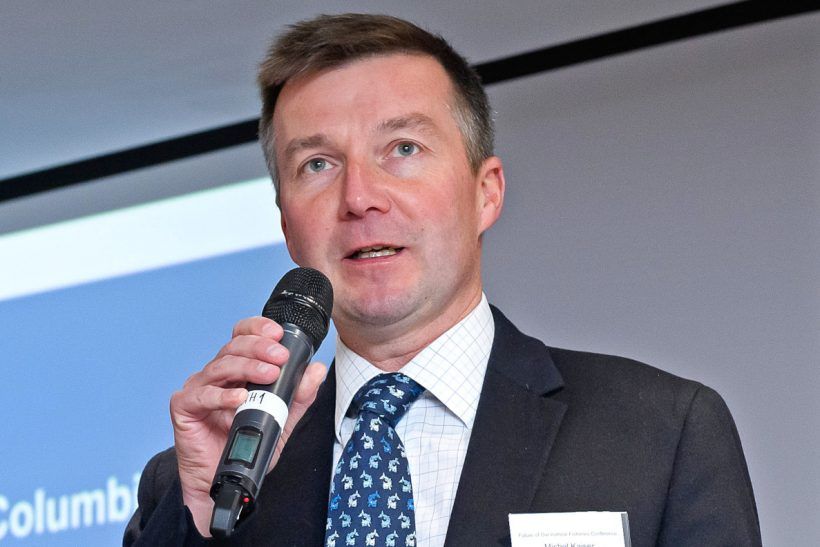
By Maurice Knuckey
•
14 Oct, 2019
14th October 2019 - Inshore conference sparks hopes for inshore future – but just the start of a long road. A landmark step towards a new deal for UK inshore fishermen was taken last week, when inshore fisheries were in the spotlight at an unprecedented two-day conference, reports Tim Oliver. Around 50 inshore fishermen from throughout the UK, as well as industry leaders, policy-makers, research institutes and environmental groups, met in London to discuss and consider possible fisheries management models. The Future of Our Inshore Fisheries was the first step in an ambitious project that aims to transform UK inshore management over the medium to long term and ensure a thriving marine environment and coastal communities in the future. Speakers from around the world and the UK highlighted the problems of managing inshore fisheries, and ways in which they had been addressed in different countries. The conference aimed to establish a blueprint for the future management of inshore fisheries and lay the foundations for collaborative management in the future. Speakers stressed the need to build awareness, understanding and consensus among those who would be involved in the future management of inshore fisheries. They presented examples of fisheries management solutions, and shared best practice from Canada, the USA, Norway, Denmark and New Zealand. Round-table sessions then discussed the presentations and their relevance to the UK. The conference, convened by an industry-led steering group and facilitated by Seafish, was held as the new fisheries bill that will enable a new fisheries management regime to be set up after Brexit is making its way through parliament. Giving his support to the conference, which was attended by DEFRA, the MMO and IFCA officials, fisheries minister George Eustice MP said: “We recognise the importance of the inshore fleet, which is at the heart of many coastal communities. That’s why it’s vital that the views of inshore fishermen are taken into account as we take back control of our waters and build a sustainable, profitable and fair fishing industry for all of the UK. “It is only through industry, scientists, regulators, UK government and devolved administrations coming together and learning from the best that we can develop tools to allow a more responsive, locally appropriate, sustainable and profitable approach to the management of our varied inshore fisheries.” READ THE FULL ARTICLE HERE .
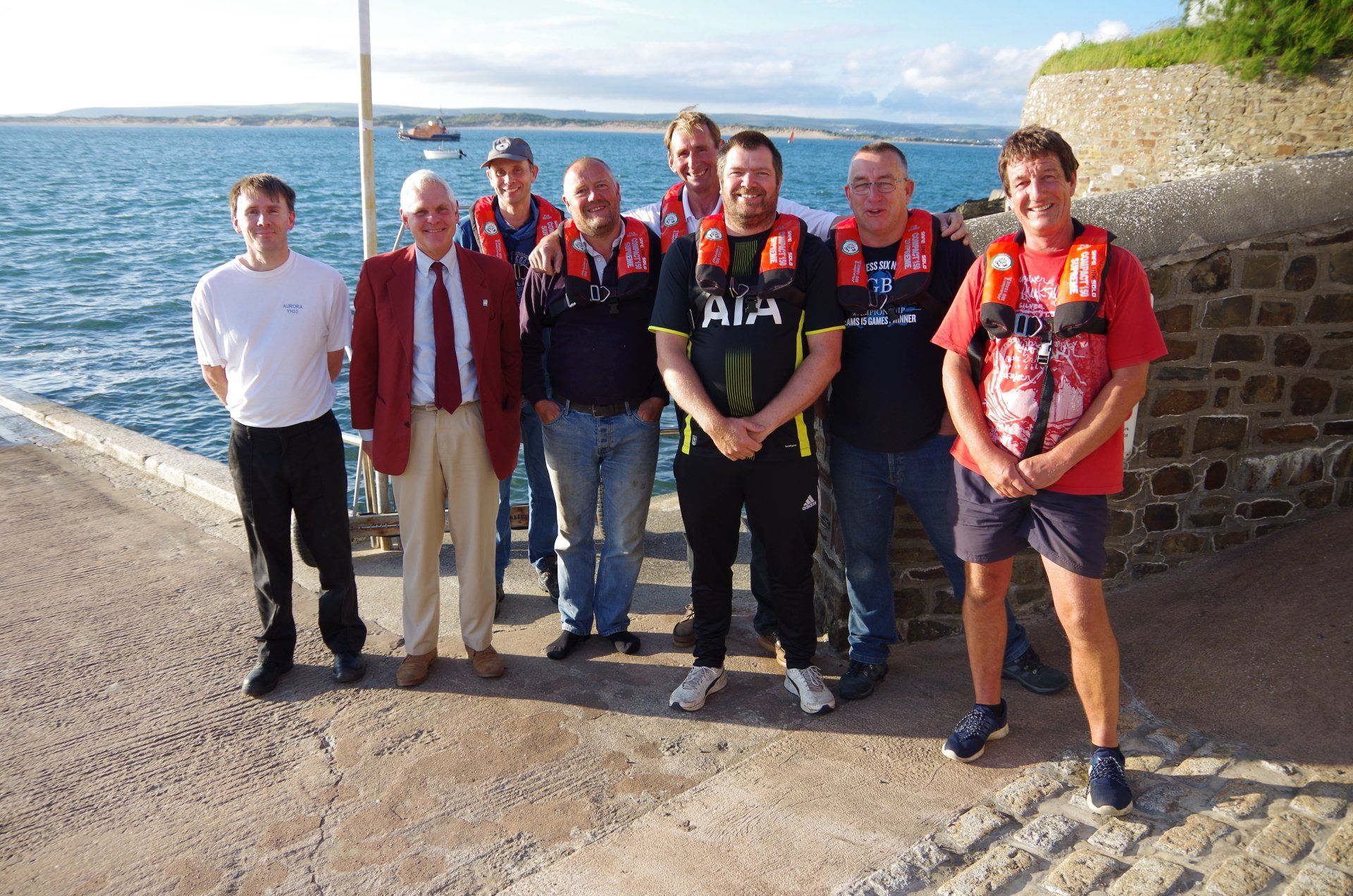
By Maurice Knuckey
•
19 Jun, 2019
19 June 2019 - Following a successful application to the MMO for funding monies along with contributions from North Devon Council and Torridge Council, 50 Lifejackets were issued to fishermen on the North Devon coast. This project was first discussed approximately eighteen months ago and eventually after the involvement of Councillor Phil Hackett, came to fruition.

By Maurice Knuckey
•
21 May, 2019
21-22 May 2019 - John Balls attended the NFFO AGM split over two days, in London. In between the meetings attendees met with Robert Goodwill, Fisheries Minister and were able to challenge him on one or two issues. North Devon was represented in two reports in the Fishing News. Please see scanned report.
Our mission is to support a sustainable fishery for businesses within the industry. Enhancing current methods of commercial fishing to make businesses more profitable; using research to stimulate new ideas and growth.
2019 | Copyright northdevonfishermen.co.uk
2019 | Copyright northdevonfishermen.co.uk
Click here
to find out more about becoming a member of the NDFA.
The North Devon Fishermen’s Association (NDFA) is a Company limited by guarantee, registered at
Bidna Wharf, Appledore, North Devon, EX39 1UZ
